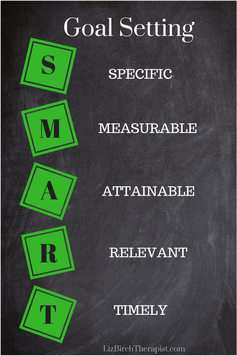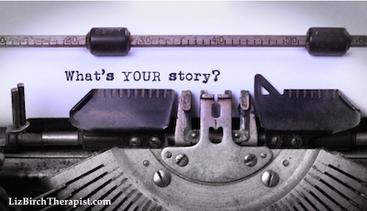 What is your inner child telling you? Do you want everyone to cater to your needs? Do you find yourself disappointed a lot? Do you have a lot of fear... anxiety? The idea of having an inner child may be foreign to most people. But all of us have a part of us that's still us as a child. It's possible that our inner child never fully grew up or may not be fully healed from pain in the past. Think about your current life and all the emotions and behaviors that you don't like and are continually trying to change. These emotions and behaviors come from our experiences from when we were small children. From birth to about 6 or 7 years old, our brain functions at a relatively slow pace, which is a very "receptive" brainwave state. At this time we are profoundly affected by our life experiences. Our beliefs about ourselves and others are formed during this time based on our life's experiences. As small children we will have been absorbing a great deal from our extended families, our caregiver(s), friends, religious institutions, etc. Our experiences may have been filled with love and support or they may have been filled with neglect and abuse. Our subconscious takes in all this information and holds on to it for the rest of our lives. We cannot change the script. The life we experienced happened, whether good or bad, it happened. And that script, how our brain processes our events, is designed to keep us safe. Hence, anxiety to keep us on the lookout for danger (as an example). All of our life experiences have been "logged" into our sub-conscious minds and bodies. This all creates the pool in which we float, or sink. Inevitably, the water will be a bit dirty - or it may even be like thick mud. In this pool is our self-esteem, body-image, family trauma, shame and secrets (even if not spoken about). We sink down into this pool, or mud, whenever we are overwhelmed by our negative thoughts, emotions, self-doubt or self-loathing. In therapy the aim is to sensitively lift out this dirt/mud, bit by bit, until we are left with just a stain of what was once there. In therapy you can learn how to meet, rescue and “adopt” this wounded child who still lives deep inside you. This process of meeting, rescuing and adopting your wounded child is an amazing process. Any why you? Because you are the only person who you can guarantee never to leave you! Signs that your Inner Child may be wounded: low self-esteem, poor body-image, mood and emotional imbalances, problems with boundaries being too rigid or too weak, problems with eating, harming yourself, being a rebel/ a hoarder/ a bully/ a perennial victim or a super-achiever, intimacy problems, commitment problems, a general lack of trust in yourself and others, criminal behavior, excessive lying, just to name a few. If you are in Orange County, California and interested in working on your Inner Child please feel free to reach out to me. We can begin with a free 15-minute consultation and go from there. Or you can reach out to any therapist in your area and ask if they do Inner Child work. I wish you all the best! I am a licensed Marriage & Family Therapist who can provide services with anyone who resides in the State of California. I have also been trained in Clinical Hypnotherapy which is beneficial for more specific goals.
Liz Birch, LMFT, CHt ~ 714-584-6047 ~ [email protected]
0 Comments
 Many of us have great intentions of reaching our goals. We may tell ourselves; "I'm going to work out more, I'm going to increase my sales this month, I'm going to work on home improvements this week, or I'm going to begin drinking less alcohol". All of those are great goals, however, it's too easy to not reach any of those goals if we phrase them as I wrote them. In order to be more successful in your goals you must get much more specific than the examples I listed above. A great system to use is the SMART goal setting system. SMART goal setting brings structure and traceability into your goals and objectives. SMART goals create clear milestones and an estimation of the goal's attainability. What does S.M.A.R.T. goal setting stand for? S = Specific
Being a therapist, I use this SMART system with many of my clients. I help them get very specific on what they want to accomplish in therapy. This may take a few sessions to figure out but it's important to clarify the goal. To have someone say, "I want to feel better about myself" is good, but it will be too difficult to know when my client will be there. So I dig a little deeper and ask my client, "What does that look like to you?" After some exploring my client may say, "Instead of crying 4 days a week, I want to work on only crying 2 days a week". That's very specific and attainable. We work on that goal and after a month or so we revisit the goal. Is the client crying less? How many days a week are they crying now?" Once they've reached crying only 2 days a week we set our next goal. How about crying only 2 times a month? Again a specific goal. This system works well when working on communication issues in relationships. A couple may argue every single day. So our measurable goal may be that they argue only 4 days a week. Of course, we don't want arguing at all, but is that realistic? Attainable? We set goals that we can be successful with. Once that goal is reached of only arguing 4 days a week we set a new goal of only arguing two days a week, and so forth. During the sessions, while working on goals, the therapist is exploring with the client what got them in their predicament. What changes need to be made and how can some of their problems be resolved. It's all a work in progress all striving for those specific, measurable, attainable, relevant, and timely goals. Why don't you think about a goal or two you'd like to reach? Then apply the SMART goal setting approach and see if that makes reaching your goals a bit more successful. I bet you'll be pleased with your results. If you are in my area and need help reaching your goals, please feel free to reach out to me and together we can work this system. It may take just a few sessions to get you set up and going. You can then check back a month or so later and we can explore how you are doing. My hope is for everyone to be successful in their goals, no matter how small or large. I am a licensed Marriage & Family Therapist who can provide services with anyone who resides in the State of California. I have also been trained in Clinical Hypnotherapy which is beneficial for more specific goals. Liz Birch, LMFT, CHt ~ 714-584-6047 ~ [email protected] https://en.wikipedia.org/wiki/SMART_criteria
 I’ve always recognized that I tend to run on the perfectionistic side. I’ve always liked things neat and orderly. When I have a project to do I strive to get it done as soon as possible because I don’t like projects hanging around. Also, when working on anything, I want to do it right the first time because I don’t want to waste time having to do it again. On the one hand, I appreciate my intention to do my best at whatever I do, but on the other hand, I see how this mentality can paralyze my efforts and prevent me from taking risks and reaching my goals. I have since come to learn, in the past decade, that I will get more out of life, and strive farther if I am more relaxed and flexible regarding some of my actions. My perfectionistic attitude hasn’t completely left me but there is a part of me where I’m learning to expand my perspective, be okay with some failure, and on occasion work on tasks allowing more room for error. We all have the choice to change. We can choose to shift our perspective and tell a new story. I’ve written, in the past, about how we all can change our stories. We don’t have to continue living with the struggles we place on ourselves. We all can write our new life story that includes imperfections and it’s benefits. All of this reminds me of a woman I once worked with. Forty-five year old Jane* is a CEO of a large company with many employees who report to her. In addition to her typical CEO responsibilities she also is part of the training program and does monthly workshops teaching those in middle management how to be successful in their jobs, which ultimately benefits the company. On one hand Jane appreciates the opportunity to share her sharp business sense and to improve the job skills of those in middle management, but on the other hand she lives with hidden intense anxiety that is destroying her daily living. At the end of the day she’s exhausted and by the time she gets home she takes out her anxiety and stress on those closest to her. When I first met Jane I could see an unhappy woman, who enjoyed little, but she had an amazing job making great money. I asked her to tell me details of why she came to therapy. Then, we had the following exchange. Me: Think for a minute, Jane. You're home alone on Sunday with anxiety gnawing at you. What goes through your mind the second before you begin to feel that way? Jane: Tomorrow is work and a training day. Me: Okay, but what do you tell yourself that is so horrible about that? Jane: I might make a mistake. What if I tell middle management something wrong? I’ll embarrass myself. Me: Ah! So what if you did? Why would that be so horrible? Jane: I don't want to make a mistake. Me: I know and that's good. Wanting to do well keeps you motivated. But, what I'm hearing you say is that, not only do you not want to make a mistake, but that you must never make even one mistake. Jane: I’m a CEO. I’m supposed to know everything about my business. They expect that of me. I can't afford a mistake. Me: But, Jane, how in the world can you pull that off? How can you go through your professional life, much less even a single day, and never make a mistake? Sounds impossible to me. Even CEO’s are imperfect, fallible people. Aren't they? Jane: Of course, but I got where I am today because I was taught to do everything right. My father started the company, worked hard, grew it to where it is now and had high expectations of me. I have to be sure I put out quality work, to not accept anything but the best. God forbid I make a mistake! He’s gone now but I still can’t fail. Me: Well, that's a shame, because that sets up the anxiety you suffer. Think about it. You've taken an admirable desire to do the very best you can with each of your managers. And then you've convinced yourself that you absolutely must, or need to be, God's gift to perfection. With that “must be perfect” expectation banging around in your head, you bring on this misery every time you’re in front of people. Do you see that? Jane: Yes, I guess, I see it. Me: What does this demand for perfection get you? Jane: I suppose my anxiety. Me: Yes, and little, if any, happiness and pleasure in your work. Jane: Sad, but true. My synopsis: Jane had a strong desire to do well, which was appropriate, and it motivated her to give each manager her very best. But, she went beyond this desire to believing that she must—absolutely must—perform perfectly, never overlooking one piece of data or making even the slightest mistake. To her, it would be horrible to make an error and she feared being humiliated in front of her managers so much that her anxiety began to take over her life. Even past her father’s death she fears letting him down. She hated Sundays because that meant the following day was the pressure of being perfect at work. Me: I’ll bet you hold these perfectionistic expectations in other areas of your life as well, not just at work. Right? Jane: I’m sure I do. Me: Well, like where? Jane: I get nervous at family functions. Me: What's your attitude about that? Jane: What if I do something stupid? My extended family knows I’m a CEO of a company my father started and they have expectations that I carry myself a certain way. I don’t feel like I can “let down” and relax. I’m always on edge. Me: In other words, Jane, you must do well at all times and look good, or else. Jane: Yes, that’s right. Once we got to the core of Jane’s anxiety we began to focus our therapy goals on her perfectionism. As Jane learned to relax and let go some of her perfectionism she began to realize that her managers were seeing her in a more real and authentic way. She did make a mistake in one of her presentations and she learned the world didn’t collapse. She saw that when her managers saw her mistake, it took the pressure off of them to be perfect and their own anxiety reduced. Jane’s happiness began to increase and her Sunday’s were much more enjoyable. Her family also saw her more authentic, relaxed and fun to be with. Here are four benefits to being imperfect: 1. Less Stress - Ditching the “shoulds” and all-or-nothing thinking will allow you to find more peace and enjoy your daily accomplishments and successes while you learn from your mistakes and less than perfect outcomes. 2. Improved Relationships – When you can accept your limitations and imperfections, you give others the permission to be imperfect, as well. As your expectations and impossible standards for yourself lessen, so do those you held for the people in your life. Our outer world is a reflection of our inner world, so when we begin to value ourselves regardless of what we do or achieve in any area, we then begin to value others for who they are and not what they do. 3. Increased Energy – When all of your energy is no longer concentrated on worrying about what you SHOULD be doing and how you SHOULD be doing it, you free yourself up to focus on what really matters. 4. Healthier Self-Image – Accepting and appreciating our imperfections creates room for self-nurturing, compassion, and love. You can begin to appreciate the qualities, characteristics, and experiences that are unique to you without the need to be perfect. Bottom line, if you are struggling with perfectionism accept that you are a fallible human being, one who, by your nature, cannot ever lead an absolute perfect existence. Strive to do well and work at creating positive experiences throughout your life. But what is most important is to be authentic and realistic. Make the effort to let go of your perfectionism and you will see the positive results. * While the main parts of this client exchange are true, main facts have been changed to protect the client's anonymity. I am a licensed Marriage & Family Therapist who can provide services with anyone who resides in the State of California. I have also been trained in Clinical Hypnotherapy which is beneficial for more specific goals. Liz Birch, LMFT, CHt ~ 714-584-6047 ~ [email protected]  Most of us don’t even scratch the surface of knowing who we really are, let alone figuring out what we have the potential to become. We are so confused that we keep oscillating between overconfidence and low self-esteem. One minute we are filled with a definite purpose for life and the next we move to the opposite end of the spectrum and are completely desolate. Knowing ourselves better is a boon to our lives. We’re able to make smarter decisions about what’s best for us. We’re able to create more satisfying lives – lives that are based on our core values and personal priorities. Often our identities contain a lot of “shoulds”. In other words, we strive to be what we think we should be. These “shoulds” may derive from society or our family and friends. I should like this. I should be that. I should behave in this way. I should say that. Who we are gets confused with and buried under the layers of who we think we should be. Strip away the “shoulds”, and think about who you really are. Simply ask, “Who am I?” You can start with statements like “I am a daughter” or “I am a writer” and progress to “I am happiest when I’m laughing with friends” or “I am learning to be kinder to myself.” If we begin asking ourselves the right questions, it may take us to the answers we need to gain clarity in our own self-discovery and lead us to a more fulfilling and happy life. Here are 28 questions that open the door to help you in having a real conversation with yourself. Spend some times on these and answer them as honestly as possible. You may find some uncomfortable and some difficult. Don’t filter your answers by what you think others may think but rather be true to yourself. This is how self-discovery begins. Enjoy!
I am a licensed Marriage & Family Therapist who can provide services with anyone who resides in the State of California. I have also been trained in Clinical Hypnotherapy which is beneficial for more specific goals. Liz Birch, LMFT, CHt ~ 714-584-6047 ~ [email protected] mind·ful·ness ˈmīn(d)f(ə)lnəs/ noun 1. the quality or state of being conscious or aware of something. "their mindfulness of the wider cinematic tradition" 2. a mental state achieved by focusing one's awareness on the present moment, while calmly acknowledging and accepting one's feelings, thoughts, and bodily sensations, used as a therapeutic technique.  Relationships are the cornerstone of a good life both emotionally and physically. Relationships (for this article) don’t only mean between two people that are connected by blood or marriage, but are also interactions between two or more people in any setting. We may have a relationship with members of our community, co-workers or people we worship with. So when I refer to relationships it can be with anyone we encounter and how we talk, behave or deal with each other. It’s been highly reported that being in satisfying relationships lead to a happier life with fewer health problems as well as reduced depression and cognitive decline. So you can deduce that being involved in relationships that are unsatisfying or negative can lead to negative health effects and poor daily outcomes. So, now lets talk about relationships and mindfulness. To be sure you understand mindfulness – “mindfulness” means maintaining a moment-by-moment awareness of our thoughts, feelings, bodily sensations, and surrounding environment. Research on mindfulness at the University of Massachusetts Medical Center and at the Harvard Medical School shows that the majority of people who attend an eight-week mindfulness-based stress reduction course reported lasting improvement in both physical and psychological symptoms from conditions such as heart disease, migraine headaches, some auto-immune diseases, obsessive thinking, anxiety, depression, and hostility. They also report an increased ability to relax, greater energy and enthusiasm for life, improved confidence and self-esteem, and more effective coping with both short-term and long-term stress. Mindfulness involves acceptance, meaning that we pay attention to our thoughts and feelings without judging them—without believing, for instance, that there’s a “right” or “wrong” way to think or feel in a given moment. When we practice mindfulness, our thoughts focus on what we’re sensing in the present moment rather than bringing up the past or forecasting into the future. Here’s a closer look at mindfulness in a relationship: A typical conversation between a couple may involve one partner remarking, “You used to want to go out every weekend. You used to enjoy going hiking on a moments notice.” This may spark a defensive response in the other partner: “What? You’re saying I don’t want to go out and have fun anymore? You think I’m boring? Well look at you? The only thing you want to do is stare at your phone and play games on it! You seem happy just sitting on the couch!” This type of angry and accusatory response tends to have a snowball effect. “I never said you didn’t want to go out any more, and now you’re saying I just want to play on my phone? I’m constantly working to make you happy. You’re so ungrateful.” Couples tend to play off each other in the heat of the dialog. In that intense angry state, their resentments toward each other start to flow. At this point, their higher functioning brains are offline and the emotional centers are flying out. Strong, exaggerated, hostile statements are erupting. Yet, if either could be more mindful in the interaction, they would take pause before responding. Before reacting, slow down. They could notice what is happening and that they are being triggered. In a mindfulness state they can choose to do something else. Before reacting, listen intently to what your partner is saying. Imagine your partner’s emotions. Listen to the words. Fight being triggered and just reacting. You might need to take a break. This may mean taking a few deep breaths or going for a walk so you don’t become engaged in the angry fight. The next time you find yourself in a more un-mindful moment (blaming, criticizing, judging) with someone, simply take a breath, observe your body and ask yourself the following questions:
Philip Moffet, who founded the Life Balance Institute, stated the following about Mindfulness and Relationships; 1. Begin your exploration of relationship with making an inventory of how “related” you feel to others in various situations in your daily life. Then cultivate a modest aspiration to deepen your feelings of relatedness. Avoid falling into cultural clichés around what different kinds of relationships are supposed to look like. Relatedness is an inner felt experience that you know in your heart and in your body. 2. Become interested in the nature of your friendships. Be honest with yourself. Are they friendships of convenience, mutual advantage, or circumstance? If so, how does that feel? Can you identify three people whose friendships offer the potential for deeper feelings of relatedness? Each of these opportunities may be less than ideal, but still there is opportunity. You are cultivating the ability of your mind and heart to be available for relationship and through mindfulness developing the skills to do so. 3. Turn your attention to your significant other. If it’s a long-term relationship, notice if you have ceased to seek intimacy. If so, why? Is it because of their imperfections? Your feelings of rejection? Boredom? Is the relationship failing to meet some expectation? This very same relationship offers an opportunity for deeper relatedness, if you are willing to accept the person as they are and not demand that they be otherwise. Commit to do doing metta [loving-kindness] practice for your significant other every morning for six months and observe what change occurs when you cultivate love without demand. 4. In most families there is a range of closeness among members. Do you feel more related to some members of your family than others? Start being mindful of how lack of closeness causes you to be defensive around a certain family member, or to shut someone out, or to ignore their full range of human dimensions. Begin a compassion practice for one such member of your family and start to explore how you can be more fully accepting of this person just as they are. And then notice how it feels within you when you do have a moment of such acceptance. 5. In one sense your co-workers are your work “family.” In fact the culture at your workplace will reflect the family dynamics of your boss. So you can do reflection #4 for your co-workers, just as you did for your family members. 6. Throughout your day you can notice and appreciate other people and be sympathetic toward their situations. Smile at them. Be kind to them. All of these actions represent numerous moments of relatedness. Develop a practice of mindful appreciation and kindness toward others. Observe how it starts to enrich your life within just a few months. I am a licensed Marriage & Family Therapist who can provide services with anyone who resides in the State of California. I have also been trained in Clinical Hypnotherapy which is beneficial for more specific goals. Liz Birch, LMFT, CHt ~ 714-584-6047 ~ [email protected]  One of the most common struggles that people come in to see me for is learning the art of letting go of the past. Many are stuck thinking about the wrongs that have been done to them and they are angry, frustrated, hurt, and sad. The unfortunate part about hanging on to those feelings is they continue to hurt and harm those that we love. That could mean hurting others that weren’t involved in the past misfortunes. So let’s take a look at those past feelings. Those feelings aren’t really the past, they are the present. You are presently feeling angry, frustrated, hurt and/or sad. And it’s those feelings that are keeping the past alive. What I first like to do with clients is to fester out all that the person is feeling, such as, anger, frustration, hurt, sadness – or any other feelings that they are experiencing. Example – Client: “I am angry that my parents worked all day and I was left alone to fend for myself”. Therapist: “You are angry that you were left alone?” Client: “Yes!” Therapist: “Tell me more about that anger.” Client: “They should have been there for me!” Therapist: “Tell me what it was like to be alone.” Client: “I had no one to talk to, I was bored, at times I got scared.” Therapist: “So you were scared to?” Client: “Of course I was scared, I was just a kid!” Therapist: “Let’s talk about you feeling scared.” Client: “I was scared because what if someone tried to come into my home when I was alone?” What if I got injured and no one was there?” “Why didn’t they care enough about me to be home with me?” Therapist: “What I heard you say in the beginning was you were angry because you were left alone but I’m also hearing you were frightened and you felt your parents didn’t care about you.” Client: “Yes, I guess, I feel they must have not cared about me so they left me alone at home.” So we move from just being angry to actually carrying around a feeling that the client’s parents’ “didn’t care”. The above is just a short snippet of working through feelings and there’s more involved. It’s a process of several sessions to fester everything out. It’s like peeling an onion and working through all the layers by identifying all the feelings that were experiences. As we identify all that had happened, it’s validated. I hope this gives you an idea of how to pull out all the feelings. I don’t want anything ignored or left out. I want to hear about the experiences that are causing so much pain. But what do we do about them now? Experiences of the past need to be validated and never brushed off. Events happened and the feelings of the past are real. I spend time with clients letting them “feel” all that they have identified. That could mean they sit in sadness, anger or grief – but just for a limited time. We then move on. Now we get to the part where we let it all go! Memories are just thoughts and thoughts have no power – unless the person chooses to give it power. Some thoughts stick with us, we react to them, and we keep thinking about them. Ugh! To keep thinking about them serves no purpose. Some things you shouldn’t do: • Make yourself forget about the past (you can not forget it) • Stuff or ignore your feelings • Wait for an apology or acknowledgment (if you never get an apology you will always sit in pain) • Wait for time to heal all wounds • Change the past (you can’t change what happened but you absolutely can change your reaction to what happened) As a Cognitive Behavior Therapist I talk to my clients about how our feelings control our behavior. If you stay with anger, hurt and sadness, then they will become your reality. As an alternative, be open to moving forward. Prepare yourself to feel differently. Contemplate not defining yourself by thoughts about the past. Keep in mind, what you focus on, will become your present. Many have been telling themselves their unfortunate life circumstances so many times that they aren’t allowing positive thoughts to come in. These negative thoughts keep you distracted from moving forward. Some stuck thoughts that people hold on to: • “I want to stay stuck because I was wronged.” • “It is someone else’s responsibility to make this better for me.” • “If I let go, I’m somehow approving another person’s bad behavior.” • “I need an apology.” • “Life is unfair.” Holding on to those thoughts, the constant reminder, will only keep your unfortunate experiences in the present. How you feel is your responsibility, no one else’s. Once you realize all the power that you have, you can begin the process of letting go. Holding on to the past is like wearing a pair of shoes that are a bit too small for you. You can get your feet into them but they hurt like heck. It’s time to take them off and begin to enjoy comfort again. Remember, you are in control of how you feel. Begin by thinking more positively. But it might not be so easy at first. You have to reinforce those positive thoughts and behaviors so they will stick. As with any sort of training, the more you practice, the better you get—and, yes, you can practice being positive. Live for today. Live for and look for the positive in others. Embrace the positive aspects of your parents, spouse, children and friends. When you start feeling like the idea of being a positive person is daunting, remind yourself that all it takes is one small step in the right direction to move yourself toward a more positive attitude. Believe in yourself and remember the most important lesson of all: A positive outlook is a choice that you can always make. I am a licensed Marriage & Family Therapist who can provide services with anyone who resides in the State of California. I have also been trained in Clinical Hypnotherapy which is beneficial for more specific goals. Liz Birch, LMFT, CHt ~ 714-584-6047 ~ [email protected]  I feel blessed and grateful with the many clients I work with. I cherish the moment when they begin to feel a sense of safety and trust and their most personal life begins to emerge. But for most, it doesn’t begin at the first meeting or two. As they sit across from me I hear the basics of their family, their childhood, and their friends. I then hear about their co-workers, peers and neighbors. I see the dance happen as they talk about everything except what they really want and need to share. I can feel their pain much before they realize it. Many of my clients share they feel comfortable with me quickly but the more difficult part is getting the guts to bring it all up - the real story. Most fear if they dredge it all up it’ll never end. They fear they will cry and never be able to stop. They fear the ugly past will rear its head more vicious then before when all they want to do is forget about it. There are so many fears when one considers the choice to open up the past. I understand that and I give my clients as much space as they need – to a point. At the beginning of therapy with me I hone in on goals. What is it that you, the client, want to accomplish? Some say, “I’m tired of feeling sad all the time”, “I want my out-of-control anger to end”, “I just don’t feel right and not sure why”. The reasons vary why people come to see me. But they walk in my door because they know they need to make a change. They know they have a story to tell. As I tell many of my clients, we all have a story. Every single person we encounter has a story. Please tell me yours. The stories that many of us live with are often deeply ingrained in our unconscious. We carry that unconscious past around daily, which creates anxiety, depression, resentment, prejudice, anger, hurt and much more. Our stories dictate how we view ourselves, how we view others, and how we perceive life in general. Even though life may seemingly be going well now, our life stories can weigh us down, keep us angry or sad, and prevent us from feeling joy, happiness, or even content. It isn’t until we open up the past, talk about it, purge it, dig in deep and explore it that we begin to feel some freedom. Living with our past stuck in our unconscious can be life draining. Remaining in that place affects our daily decisions, how we judge others, why we hold on to resentment or jealousy. In therapy, as you sit across from me, we can discuss your life story, the ugly past. I want you to share it all with me. It’s when we bring the unconscious to the conscious the freedom and change begins. Trust me when I say, you won’t cry forever and you won’t be stuck there by dredging it all up again. Rather, it’s the dredging it all up again that can be freeing. By default our brain likes to go to the negativity. So together we work on re-writing your story to shift that focus. What statements are you telling yourself? “My parents always told me I was a loser, therefore that must be true and I will never amount to much so why try?” “My uncle abused me so I will never be happy and will always feel depressed.” “I was blindsided at that business meeting, others judged me just as I’ve always been judged in the past.” “My spouse left me for another person therefore I should never trust anyone again.” Statements such as these all relate to your past and present. Using small steady steps we can begin the process of change. It might be time for you to make a change, make a move, confront the past and search ever so deep for some good that may have come out of it. Change is difficult. And re-writing or retelling your story toward better mental health is more complex than looking for the bright side of our past situations. That’s why we work on this together and recast “I’ll never forgive” or “I’m stuck with who I am,” into a new mold. It’s probably difficult for you to imagine finding anything positive out of your past but it’s there. Look at your options. You can stay with what you have, and you know how that makes you feel, or you can be open to looking at your life from a different lens. Maybe you can find many benefits from your experiences or maybe only a couple. But what’s important is that you grab any benefit there is from your life experiences and focus on it. When you look at life from a different perspective you will be surprised how much better and empowered you can feel. So, are you ready to tell your story? I am a licensed Marriage & Family Therapist who can provide services with anyone who resides in the State of California. I have also been trained in Clinical Hypnotherapy which is beneficial for more specific goals. Liz Birch, LMFT, CHt ~ 714-584-6047 ~ [email protected]  Negative thinking - we all experience it. But why can some people get past it quickly while others seem to hang on to it? Much research has been done which seems to conclude that our negative thoughts and failures stick in our brains a lot longer than positive thoughts or successes. As example: if one group of individuals are told a business has a 30% failure rate they stick on the failure and fail to realize it must also have a 70% success rate. Another group is told a business has a 70% success rate and they immediately like the business and don’t focus on the reality that it also has a 30% failure rate. But if that same group who once liked the business with the 70% success rate where then told that it must also have a 30% failure rate, they then shift to disliking the business. As long as negative information isn’t interjected we can enjoy the positive. But the minute that negative thought comes in, there we go! Our losses tend to stick. Can people easily switch back and forth from negative thinking to positive thinking? Mostly No. Studies have shown that only when we “work on it” can we make the shift. Without work our thoughts go to the negative. How can that be corrected? Basically we have to retrain our brain. When given a choice we have to learn to focus on the positive. Yes, that means begin to look at that half filled glass as half full, not half empty. Recognize when we start to go to the negative mode and made a conscious shift. Example, we complain about a friend who runs late when plans to meet are set up. We focus our thoughts on him/her being late, which cuts into the fun time. We say to ourselves they don’t care, which makes us feel angry and the negative thoughts keep spiraling. But what if you could look past your friend who tends to run late and realize when they are with you they are fun, they’re a good listener, they do care, they call, they ask about you, etc. You realize that this person is really a good person and you can look past them being late. But you have to focus on looking at the good because for most people they initially settle on the negative. Take a look at yourself. Think over various situations in your daily life. How often do your thoughts immediately shift to the negative? I would guess more than you realize. And it’s those automatic negative thoughts that are turning others off and making your day a bit more difficult than it should be. Some tips to stop your negative thinking
Thank you for taking the time to read this. I hope you found it helpful. Please make the choice to implement some of the tips I mentioned above. Only you can make a change! Happy positive thinking! Ledgerwood, Allison, Getting Stuck in the Negatives – TedTalks - 2013 I am a licensed Marriage & Family Therapist who can provide services with anyone who resides in the State of California. I have also been trained in Clinical Hypnotherapy which is beneficial for more specific goals. Liz Birch, LMFT, CHt ~ 714-584-6047 ~ [email protected]  Anger Management Anger Management Anger is a natural, though sometimes unwanted or irrational, emotion that everybody experiences from time to time. But sometimes we let this “anger” take over our lives. While anger is in place primarily as a way of surviving and protecting us, too much of it can lead to detrimental emotional and physical changes. It can cause havoc in our own daily lives and for those we are closest to. Constant anger can lead to depression, eating disorders, alcoholism and self-injury along with high blood pressure, increased heart rate, and increased adrenaline. Intense and constant anger can negatively affect your business relationships and especially your relationships with those you love the most. It can make a person rude, unapproachable and just plain hard to live with. Anger is a secondary emotion, which is caused by and hides a deeper emotion. If your friend is untruthful to others about something you have done, you may get angry when what you are really feeling is hurt or betrayed. Anger is often caused by deep sadness and, most often of all; it’s caused by fear. Next time you are angry, slow down and really think about what you are “feeling”. Could you actually be feeling hurt, disappointed or are you fearful of something? Any management of anger will require you to look at the deeper reasons for it. Sometimes, these may be half-forgotten, avoided, denied or buried. Often anger can be a need for control - of others, events or yourself. It is also often an existential issue caused by lack of meaning, loss, isolation or lack of freedom. If you address the deeper issues in counseling, you’ll begin to see certain triggers that present themselves which bring about your anger. Once these triggers are identified you can start to lower the amount of anger. Resentment is a very corrosive, hidden and unpleasant form of anger. It’s a mixture of jealousy, frustration, bitterness and harbored injustice. It is a real joy killer. You simply cannot be happy if you have deep-seated resentments about someone close to you. It’s better to talk it over and see if you can reach a compromise. Ask yourself if the resentment you feel towards the other is about what you lack rather than what they have and address that honestly and positively in your own life – asking them to help with it as much as they can. If anger is taking over you and negatively affecting your daily life with those you love, or those you work with, please seek out a therapist so you can begin the process of healing. I am a licensed Marriage & Family Therapist who can provide services with anyone who resides in the State of California. I have also been trained in Clinical Hypnotherapy which is beneficial for more specific goals. Liz Birch, LMFT, CHt ~ 714-584-6047 ~ [email protected]  When in a relationship it's important that you make it your top priority. Below are some tips to help make it last. However, if you find that you're stuck, things aren't flowing like you thought they would or you're looking for assistance keeping the love alive you may want to contact a therapist. They can help you get it back on track. In the meantime, enjoy the tips below - they aren't too hard to follow and some are even fun! 1. Talk about great times from the past. Focus on the fun times and show appreciation for what brought you together in the first place. Talk about the romantic dinners, walks on the beach, your first kiss. It’s a great reminder of your love and a wonderful ego boost for you both. Don’t focus on the fact you may not doing that much anymore but shift it to the positive memories and the fun, acceptance and love you felt. Having a positive conversation like this will bring those fun memories to the forefront and increase the likelihood you incorporate those good times again.
2. Touch often. The power of touch is extremely important! Those little touches are a very powerful way to stay connected. As you pass each other touch a shoulder, hold hands, touch a cheek when kissing. When sitting on the couch together watching tv, softly rub his/her arm or leg. Give each other hugs! As relationships age the touching tends to decline. When was the last time you touched your partner? It’s amazing how soothing, calming and closeness a touch can bring. And … touching releases a powerful sex hormone called oxytocin. Oxytocin causes a bonding feeling. It takes very little touching for the oxytocin to kick in… so please keep touching. 3. Be a good listener. Sometimes we just need to be heard. We don’t want a solution or a lot of talk in return. Venting is good! Let your partner vent, let them know you hear them, give them hugs or hold their hand when venting (there’s that touch). Your partner may not know if you want advice or just to be heard so communicate that. When we love someone we want to try to fix things. So communicate you just need to vent .. then .. your partner knows to be a good listener. 4. Communication! Talk to each other. Let each other know your wants. Ask your partner, “What do you need more of?” Then the key is, when they tell you, follow through on their answer. They might respond with “I need more alone time with you” or “I miss kissing you like we used to”. When you make your needs known resentment and anger doesn’t build because it's all out in the open. So talk, talk, talk. Get the conversation going. Once it’s been shared you can easily fulfill the request or talk about a compromise. 5. Accept that you each are going to have bad days. We all can’t be perfect every day. Your partner may snap at something you find ridiculous. Chances are it isn’t about that little thing that he/she’s snapping about but rather a bigger issue of something that occurred earlier. Like an argument with a friend or colleague. So before you jump back with a terse response, remain calm and listen (remember “be a good listener”). Try and understand your partner may just be having a bad day. Be a little sympathetic. When you practice this it will become more natural when it’s you having the bad day and your partner will see how nice it was that you remained calm. 6. Have fun! Every day life can be stressful. We are filled with bad news on the radio/tv, there’s financial problems, you hear of friends not getting along. All of this can pull a person down. Instead of focusing on the bad, take time to play! Grab a glass of wine and play a board game, play cards, plan a date of miniature golf. Get out the rut. Laugh! Giggle! Tickle! Be spontaneous! Remind each other how fun you both can be. 7. Be financially responsible. Money is one of the biggest relationship stressors, especially when times are tough. You both need to know the bills are getting paid which brings a feeling of security. Watch the unnecessary spending. What tends to work well is having a joint account for bills and necessities but also create a separate account for each of you. You don’t have to put a lot in the separate account if you don’t have much coming in, but, it creates a play account where you don’t have to ask permission to spend. Have a conversation on what amount will work for you both. It can be as little as $20/month. Trust me, it adds up over time. You each put the same amount in each of your accounts. Save it over time and then when you need a special item you can buy it. No hard feelings because it’s already been worked in the budget. 8. Give each other alone time with their friends. Sometimes events come up that might be just a guys or girls night out. Maybe the guys want to get together to watch a sporting event or the girls want to have lunch together. It’s okay! Don’t make each other feel guilty for wanting to spend time with their friends. Maintaining separate social lives and being supportive of each other boosts a relationship. 9. Fight Fairly. Don’t use words like “always” or “never” when arguing, such as, “You never let me do what I want!”. That distracts from the issue at hand. Remind each other that you need to stay focused on finding a solution. You each may say something that you don’t really mean but don’t realize it until the argument winds down. Know that it’s okay to say, “I’m sorry, I didn’t really mean that”. Accept the apology and refocus on the solution which may involve a compromise. 10. Drop old issues. We all have “stuff” from our past. Maybe with old friends, dating times and/or family. Don’t bring up old issues to use in a new argument. Avoid the hot topics if you’ve already discussed them. Hopefully these have all already been worked through. If either of you are having a hard time of letting go and the past keeps coming up you may need the help of a therapist. I am a licensed Marriage & Family Therapist who can provide services with anyone who resides in the State of California. I have also been trained in Clinical Hypnotherapy which is beneficial for more specific goals. Liz Birch, LMFT, CHt ~ 714-584-6047 ~ [email protected] *Photo via foter.com |
|

 RSS Feed
RSS Feed